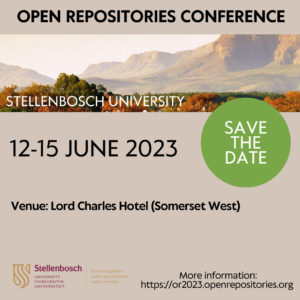In response to recent inquiries, the Open Repositories (OR) Steering Committee would like to share with the broader community our discussions and decision-making processes regarding conference locations. While recent political developments in various locations have brought this issue to the fore, many of our processes are not new and have informed our evaluation of conference locations and related efforts. These processes have evolved over the twelve Open Repositories, and will continue to do so.
First and foremost, we reiterate that we are an open community. We view inclusion and international participation as cornerstones to our work. We actively seek to include people from across the world, as both attendees and hosts, and have over the last four years offered a scholarship program to assist attendees who might not otherwise be able to attend.
We deliberately rotate the conference location on an annual basis. This is done to allow as many people as possible to attend, to expose local practices, and generally to gain the benefits of geographic diversity. Conferences have historically alternated between Europe and North America; in order to gain more global participation, Open Repositories 2017 was held in Brisbane, Australia. The Steering Committee welcomes, and actively solicits, proposals from hosts in more geographically diverse locations for future events.
We strive to avoid problematic, controversial, or exclusive locations. One of the challenges that any international conference faces is the length of time to plan, organize and host an event. OR sites are typically chosen one to three years in advance of an event, as part of a competitive bidding process. This process involves a great deal of work by all parties – including the host (and potential host) sites and the OR Steering committee. A typical call for Expressions of Interest (the first step a potential host institution must take) will elicit six to eight proposals, from locations. These vary widely in scope, detail and options, and the OR Steering Committee evaluates them all seriously. Once a host site is chosen, it will take over a year to organize and put on the event. Money also begins flowing early in the process, as venues need to be reserved and resources booked, and host institutions typically take on substantial financial risk as part of that process.
Moving a conference of this size to a new host, in a new region, isn’t a trivial undertaking. When socio-political events take place that would exclude or make it more difficult or dangerous for certain people to attend after an OR is selected, we assess the impact and best course of action. We work with the local hosts and international delegates to mitigate impacts as much as possible. In the most extreme cases, we would consider several possibilities, including cancellation or relocation of an OR.
Another factor to conference planning often overlooked is that many countries, particularly those in the global north, have higher bars of entry in terms of requirements for visas for participants from certain other countries (often in the global south). The OR Steering Committee works with potential attendees to help wherever possible. This includes providing visa support letters to those attendees as needed. Recent OR Calls for Proposals have been earlier in the year; a benefit of this is to allow more time for attendees to apply for visas and complete any necessary paperwork once authors of successful proposals have been notified.
After a conference location has been chosen, the OR Steering Committee also works diligently to make the conference open by offering scholarships, facilitating travel, and providing a good space for collaboration and discussion. We take our Code of Conduct and Anti-Harassment Policy very seriously and have a standing committee dedicated to it.
This year we are exploring new options for attendance at OR, including robust remote participation. This is not something that can be implemented immediately, but must be written-in as part of the requirements for any potential host. As anyone who has attended a large, technology-focused conference can attest, network capacities are often still a challenge. Many venues struggle to accommodate 400-600 attendees with multiple devices. Adding a requirement for real-time streaming (if not fully interactive capabilities) would significantly reduce the number of sites that could potentially host an OR.
We are proud of our commitment to inclusion and openness; however, we can and do strive to do better. The entire OR Steering Committee is dedicated to improving the Open Repositories experience for all. We welcome feedback and continued conversation around these issues. Please contact any member of the Steering Committee with comments.

